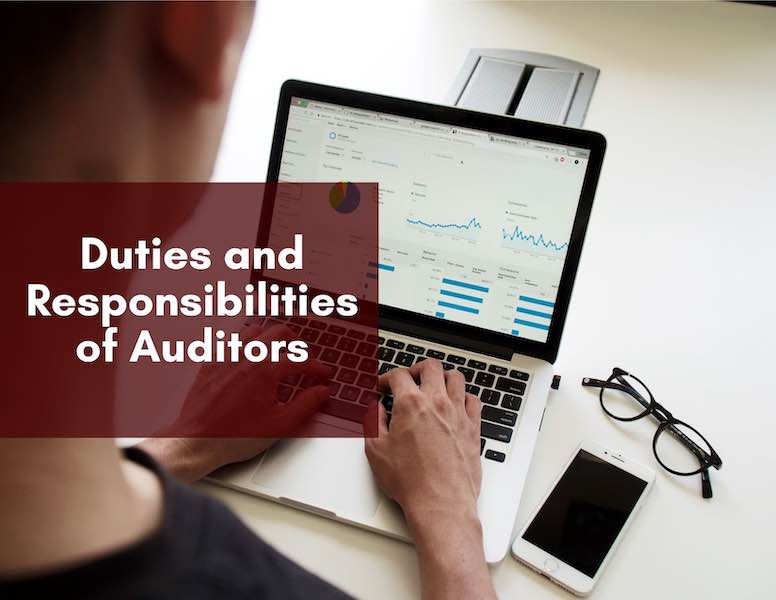Duties and Responsibilities of Auditors in relation to the Company’s Financial Statements and Accounting Records
by Lavinia Kumaraendran & Yap Sher Min ~ 7 July 2020


Lavinia Kumaraendran (Partner)
Tel: 603-6201 5678 / Fax: 603-6203 5678
Email: lkk@thomasphilip.com.my
Website: www.thomasphilip.com.my

Yap Sher Min (Associate)
Tel: 603-6201 5678 / Fax: 603-6203 5678
Email: ysm@thomasphilip.com.my
Website: www.thomasphilip.com.my
When it comes to matters relating to the company’s financial statements and accounting records, the company’s auditor owes the company several duties and responsibilities pertaining to that. However, this is true even to company directors. This article will thus deal with the following matters:
- The duties and responsibilities of the Company Auditor relating to the company’s financial statements;
- The potential liabilities of the Company Auditor relating to the company’s financial statements; and
- Whether a company auditor found to be liable to their duties and responsibilities may excuse themselves from such liabilities by claiming that it was the director’s fault instead.
TAKE NOTE THAT this article focuses mainly on the duties and responsibilities of a company auditor and does not place provide any thorough elaboration of the duties and responsibilities of a company director in regards to the company’s financial statements and accounting records.
Duties and Responsibilities of the Company Auditor
It is found that an auditor has statutory duties under section 266 of the Companies Act 2016 to report to the members of the company in regards to the financial statements, company’s accounting and other records relating to those financial statements. The presentation of the reports will differ for both public and private companies. In this regard:
- Where you are a public company, such reports will be laid before the company at its annual general meeting.
- Where if you are a private company, such reports will be circulated to its members or laid before the company at a meeting of members.
It is important to note that such reports prepared by the auditors must state the following:
- Whether the financial statements / consolidated financial statements (where such report was done for a holding company) are in his opinion properly drawn up by ensuring that:
- Such report gives a true and fair view of the matters to be dealt with in the financial statements / consolidated financial statements and the company’s affairs; and
- Whether such statements were in accordance with the applicable approved accounting standards.
- Where if the financial statements are in his opinion not drawn up with the applicable approved accounting standard, then he must state:
- Whether in his opinion, the financial statements / consolidated financial statements would if drawn up in accordance with the approved accounting standard, have given a true and fair view of the matters to be dealt in the same. Where if not, he must give reasons for such opinion;
- If the directors have given the particulars of the quantified financial effect, his opinion concerning the particulars; and
- If the above two doesn’t apply, then he is to provide the particulars of the quantified financial effect on the financial statements / consolidated financial statements of the failure to draw up the same.
- In the case of consolidated financial statements (holding companies), the names of the subsidiaries if any, of which he has not acted as auditor;
- Any defect or irregularity in the financial statements / consolidated financial statements as well as any matter not set out in the same without regard to which true and fair view of the matters dealt therein would not be obtained;
- If he is not satisfied as to the matters in (a), (b), or (c), he must then provide his reasons as to why.
An auditor shall have a duty to form an opinion to each of the following matter in his report:
- Whether he has obtained all the information and explanations that he required;
- Whether proper accounting and other records, including registers, have been kept by the company as required by the Companies Act 2016;
- Whether the returns received from branch offices of the company are adequate; and
- Whether the procedures and methods used by a holding company or a subsidiary in arriving at the amount taken into any consolidated accounts were appropriate to the circumstances of the consolidation.
Where if it is found that there is any deficiency, failure or shortcoming on the matters above, the auditor must then state in his report the particulars of such.
An auditor must keep in mind that they have the following rights as well when preparing for the consolidated financial statements for holding companies only:
- He has a right of access to the accounting and other records, including registers, of any subsidiary if necessary; and
- Is entitled to require from any officer or auditor of any subsidiary, at the expense of the holding company, such information and explanations in relation to the affairs of such subsidiaries included in the consolidated financial statements.
One the auditor has completed their report, they must endorse and / or attach their report on the financial statements / consolidated financial statements and where if any of the member of the company so requires, it shall be read before the company in the general meeting which shall be open for inspection by any member within a reasonable time.
Potential Liabilities of the Company Auditor
Here is the important part – the company auditor can be found to be liable if they have failed to conduct certain duties. It is first important to note that the auditor has the power to report by writing to the Registrar where he has observed the following:
- That there has been a breach or non-observance of any of the provisions of the Companies Act which where it is found that the auditor’s opinion was not dealt sufficiently by the company by commenting on his report in the financial / consolidated financial statements or by bringing his comments to the notice of the directors of the company.
- Where the auditor is in opinion that there is a serious offence involving fraud or dishonesty being committed against the company or by the officers of the company.
Where if the auditor is found to have failed to report of any offences or non-observance of the Act to the Registrar as provided above, they are liable for an imprisonment to a term not exceeding 5 years or to a fine not exceeding RM 3 million or to both.
The Conflation of the Auditor’s Duties with Director’s Duties
Now, it is important to understand that directors have certain statutory duties stipulated in section 244 of the Companies Act 2016 in where they must ensure that there is compliance of the financial statements with approved accounting standards as well. Where they are of view that such financial statements / consolidated financial statements of a company are not in accordance with the approved accounting standard, they will have to disclose the reasons of it not being so and give particulars relating to it.
Thus, the question then arises, “How far does an auditor’s liability extend to? Can a director be found to be fully liable for an auditor’s breach instead? The question on the causation test then comes into consideration in this instance.
It is highly understood that auditors are professional bodies who clearly owe professional duties in this instance. Can they then blame it on the company or employees of the company for providing false information?
This position has been clearly addressed in the United Kingdom’s House of Lords case of Stone & Rolls Ltd (in liquidation) v Moore Stephens (a firm) [2009] AC 1391. It is first emphasized that auditors still hold the responsibility to detect accounting deficiencies or managerial fraud. This is because the auditors clearly have a duty to report the company’s fraud or and irregularities to a third party. This is important as it allows the auditor to act even where it is found that all the directors were in complicit to the fraud. As such, an auditor cannot simply claim that they are absolved of ther liabilities as the director has failed to carry out their own duties.
As referred to the quote of Stone & Rolles by Lord Manser, para. [245] in where they have distinguished the duties of an auditor and a director in regards to the handling of company accounts:
“It is in principle therefore no answer to an auditor who has failed to discover fraud to point to involvement or knowledge on the part of the company's directing mind. This conclusion is justified on grounds paralleling those applicable between the company and its directing mind... That is not surprising, since both senior management and auditors owe duties to the company intended to protect shareholders' interests, and such duties must be enforceable. The two sets of relationship are essentially complementary, although the duty is in one case primary and in the other confirmatory. However the present scheme of fraud is categorised, it cannot in the context of the audit engagement be attributed to the company itself, so as to relieve the auditors from their duty or prevent the company complaining of its breach…”
Based on such principles it can easily be said that where the auditors have been given false information by the employer of the company, they are also not allowed to simply dismiss of their liabilities as they were under a duty to the company to test the truthfulness of such statements. As such, where they had reasonably performed their duty, they would have realized such statements were false as it was their pre-existing duty owed to the company to guard against being misled by such false statements.
Conclusion
Where a professional body such as a company auditor is involved, it is important to understand that such bodies will have certain duties and liabilities owed for the services they provide for and that they may not simply pass such responsibilities and liabilities onto others.